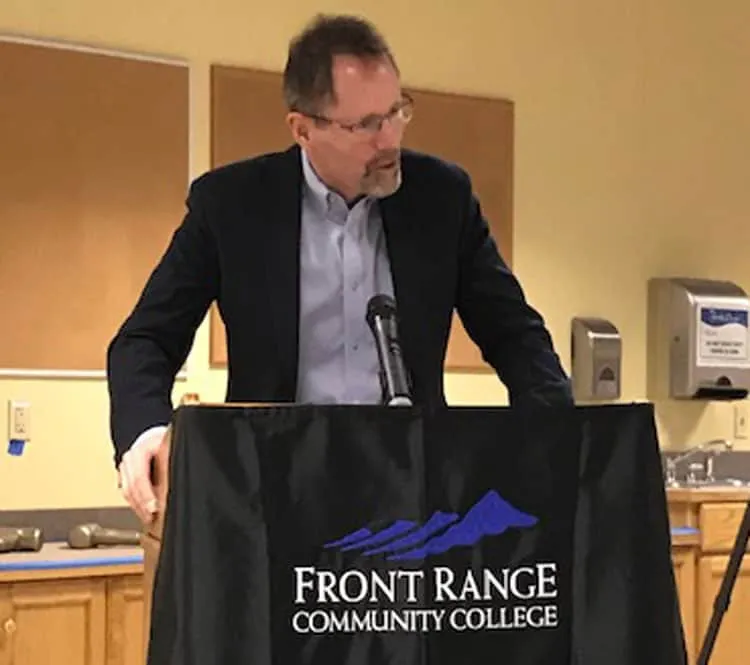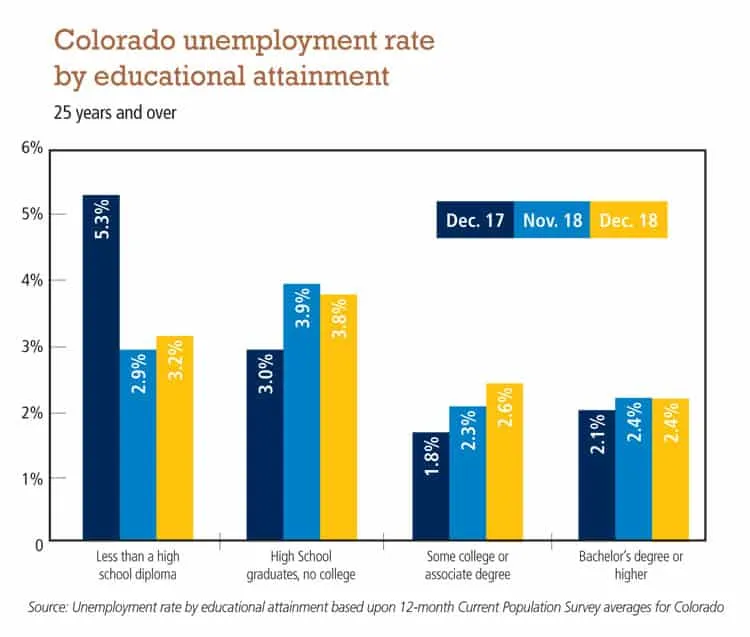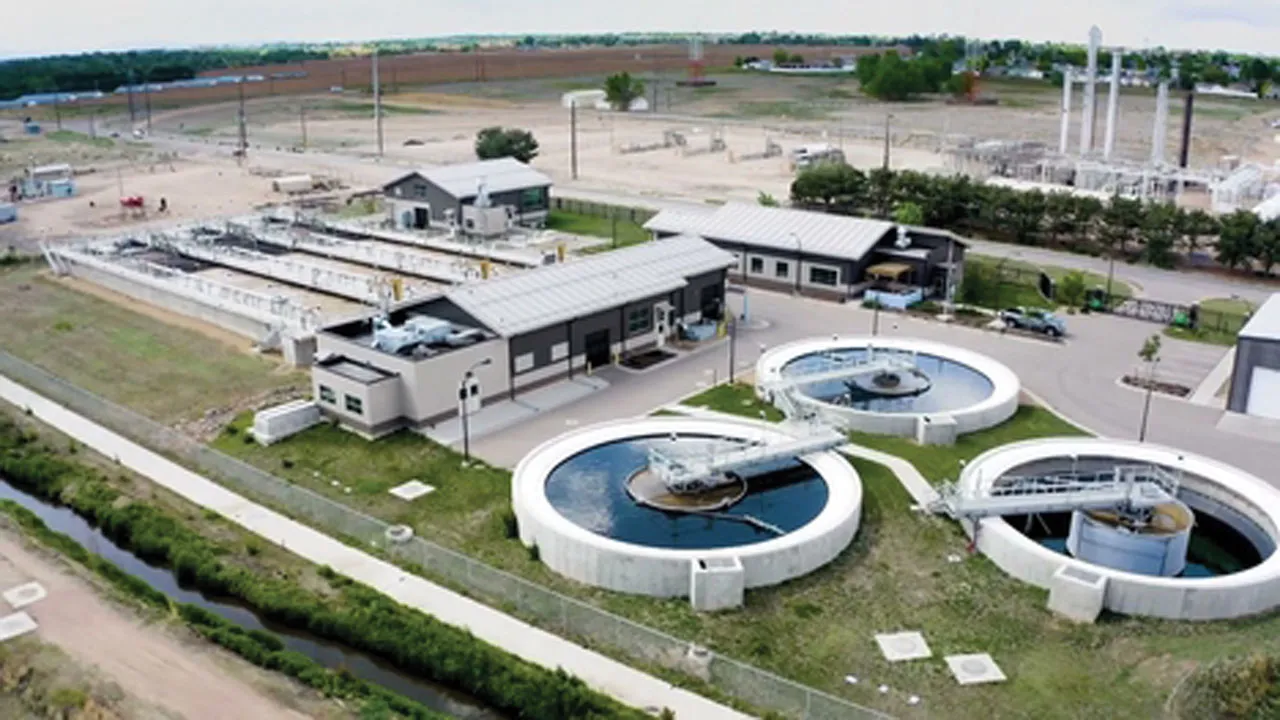Skills mismatch may be dampening economic growth

Even though Colorado’s economy is very strong right now, many experts in the state believe it could be even better if there wasn’t a gap between what employers say they want in their employees and the skill sets available in the state to fill those positions.
Industries such as advanced manufacturing, software development and health care are just three that struggle to fill positions, and have for years.
Numerous statewide initiatives have been undertaken to try and bridge the skills gap but employers in some of these industries with the most need are finding that they are still behind.
SPONSORED CONTENT

“When employers are not getting the match they want from employees, we would call that a mismatch,” said Martin Shields, a professor of economics at Colorado State University and director of the Regional Economics Institute. “Obviously that has an adverse impact on a business’s ability to be as successful as it wants to be. If there’s pervasiveness in these mismatches, it does stunt growth in Colorado. The hard part is knowing how pervasive is this problem?”
Unemployment in the state is still very low, around 3.2 percent statewide. “Economists would say that’s more than full employment and what that means is it is a tight labor market and that means that firms, businesses are adding workers as fast as they can as the workforce allows it to. The only reason in that type of environment why hiring might slow down is that there’s not enough workers for businesses to hire,” Shields said. “That’s the only signal I see in the labor market right now, that the drag on economic growth now may be the supply of labor rather than the demand for labor. That’s a pretty strong economy.”
Andy Dorsey, CEO of Front Range Community College, said that the impact of the skills gap is felt in a number of ways. The first is that individuals aren’t able to earn a living wage and provide the lifestyle they want for their families. The other is that when you have skills that don’t meet the needs of employers, “the state’s ability to attract employers is impacted as well.”
Companies have long been attracted to Colorado because of its location and quality of life. They also are attracted by its highly educated workforce but many employers need a mix of people with a variety of skills and right now there is a gap between what employers need and what is available in the market.
“Employers struggle to meet demand and their ability to grow is limited by their workforce,” Dorsey said.
A report by Colorado Succeeds in 2016 found that if Colorado students were able to achieve the levels of education required to compete in today’s economy, Colorado would gain 57,600 additional graduates who would earn an additional $8.5 billion. That extra money would flow back into the economy through home and car purchases and in new revenue and public savings. In the end, it would create more than $12 billion in GDP growth for the state and help create nearly 15,000 new jobs.

Kelly Caufield, vice president of government affairs for Colorado Succeeds, which is a nonprofit, nonpartisan organization, said that for the study her organization surveyed employers and voters about their top issues going into the 2016 election. Education was by far the biggest issue facing Colorado.
When asked about the skills employers need in their employees and how well Colorado education meets those needs, 77 percent of employers surveyed said that they found a lack of applied skills problematic or somewhat problematic; 65 percent said there was a lack of workplace skills, like teamwork, communication and leadership; and a lack of STEM skills and data analytics.
Applied skills were the hardest to find, Caufield said.
When asked what they would do if the skills gap was closed, 85 percent said they would hire more workers; 84 percent said they would grow their operations in the state and create more jobs. They would be less likely to outsource those jobs to other states or other countries. Additionally, nearly 70 percent of employers said they would increase employee wages.
Front Range Community College strives to help meet the needs of industry by offering new programs in some of these specialty fields. It opened a machinist program to address the gap in finding machinists but then found out that was only one small piece of a much larger advanced manufacturing need in Northern Colorado. There is also a need for electronics and industrial maintenance workers.
“There is still a great deal of manufacturing in the U.S. and in Colorado. The combination of growth and the aging of the workforce has meant there is a real disconnect between what is happening in education and what is happening in manufacturing shops,” Dorsey said.
Some employers in the state have taken matters into their own hands.
Heather Terenzio, CEO of Techtonic, a software and application development company in Boulder, said her company started a certified apprenticeship program four years ago because out of every five job applicants, only two people would be worth interviewing, and it was “getting frustrating for us,” she said.
One of the problems is her company, like many others in various industries, was screening applicants based on specific college majors and degree programs.
“It occurred to us, why are we screening for computer science majors and college degrees when everyone here didn’t have computer science degrees? Some had college degrees in different subjects,” she said.
The company wondered if it could find good people, with great work ethics and drive, and train them to be good software developers. By changing its hiring practices, Techtonic found a good candidate immediately who had taught himself to code but couldn’t get a job in software development because he didn’t have the right credentials to get an interview anywhere.
“Everyone can learn to write software. It doesn’t take a college degree, computer science or math degree,” Terenzio said.
She believes that HR departments require these degrees because they have always done so but even people who make it through a computer science degree program don’t learn all of the skills they will need on day one of their career.
“We have a lot of people in our company who were English and sociology and ancient history majors who are amazing. They are doing really great work here in software development,” she said. They went to college, followed their passion but realized they didn’t have a lot of career options. Instead of going into more debt getting another degree, they came to Techtonic to learn software development and get paid at the same time through the company’s apprenticeship program.
Degree inflation has become a big problem in hiring. Many companies search for the best, most educated applicants, regardless of whether their required degrees are needed for the jobs they are hiring for. Many job applicants complain that they are not compensated as they should be in these jobs considering the level of college degree they have attained. Many jobs require master’s degrees to do but don’t pay more than $40,000 a year.
Shields said that while that may be true, he thinks companies use bachelor’s or master’s degrees as a way to screen potential workers, meaning they only want to draw from a labor pool that shows they can get through a college program.
“Maybe we won’t need all the skills they got in college, but we know that people who succeed, who successfully complete their degree, may be different than those who don’t and we want to limit it to that pool of workers,” he said. It isn’t just specific job skills companies are looking for when they do that, he said. They are looking for those skills students learned while working with others to complete projects in school: better communications, problem solving and organizational skills and the ability to work well with others.
George Newman, advanced manufacturing program director for Front Range Community College, calls it looking for unicorns. “They have to have these credentials and these many years’ of experience and it is a puzzle. When there is such a labor shortage, why do they feel those qualifications are so vital? It is hard to get people to change.”

Colorado Succeeds found that many jobs do require a bachelor’s degree but when the organization researched how many students were graduating from high school and how many of those were actually going on to pursue a four-year college education, they realized Colorado has “one of the leakiest pipelines in the country,” said Caufield.
Education stakeholders “clearly understand what the economic benefit to the state would be if we focused on postsecondary and gave [students] more pathways to get to these outcomes,” she said.
_______
Read related stories in BizWest’s special report: Workforce Woes. Published in March 2019.
Skills mismatch may be dampening economic growth
Measuring impact of alternative work
New public, private programs help train next workforce
Skills-based training needed for manufacturers to fill open jobs
Even though Colorado’s economy is very strong right now, many experts in the state believe it could be even better if there wasn’t a gap between what employers say they want in their employees and the skill sets available in the state to fill those positions.
Industries such as advanced manufacturing, software development and health care are just three that struggle to fill positions, and have for years.
Numerous statewide initiatives have been undertaken to try and bridge the skills gap but employers in some of these industries with the most need are finding that they…
THIS ARTICLE IS FOR SUBSCRIBERS ONLY
Continue reading for less than $3 per week!
Get a month of award-winning local business news, trends and insights
Access award-winning content today!




